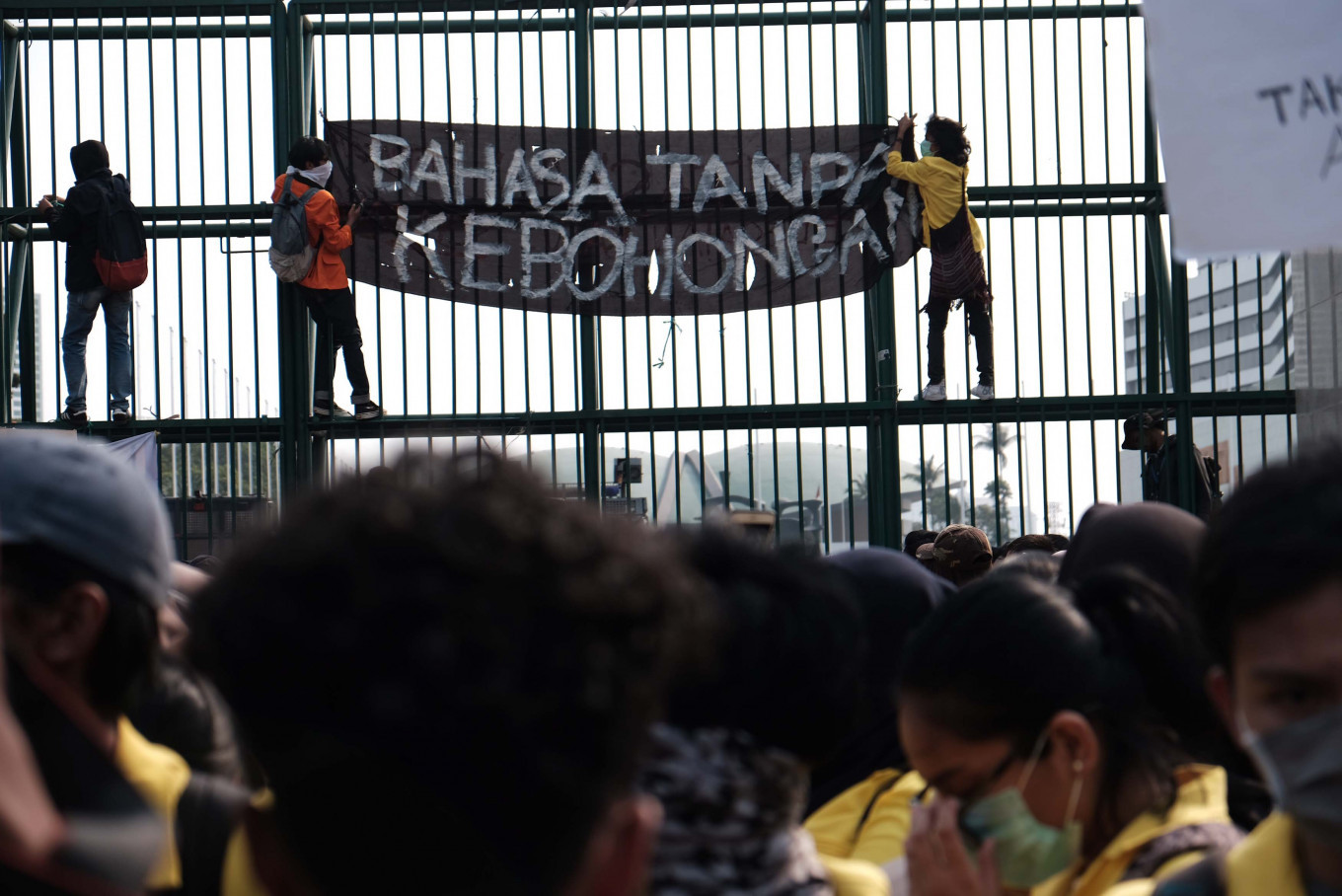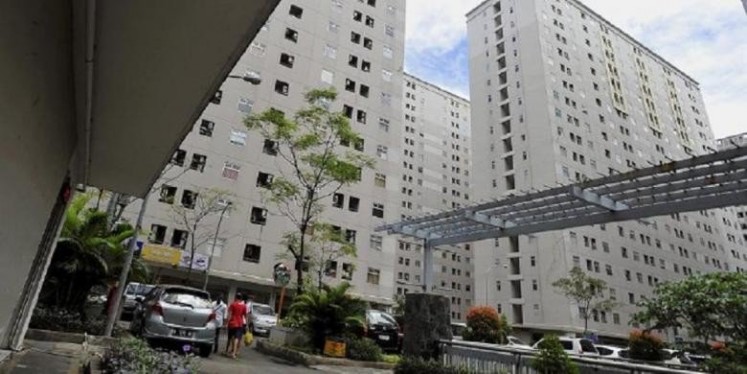Prosperity and perception: Experts review Indonesian democracy
Yesterday's forum looked at democratic progress in Indonesia, including ongoing challenges as well as a public satisfaction survey that suggests a correlation between democracy and prosperity.
Change Size

T
he current model of democracy in Indonesia, which has been in place for the past 20 years as the successor to the New Order's authoritarian model of government, will continue to face challenges in the coming years, especially with nondemocratic governments gaining more traction in recent years, political analysts say.
Executive director Philips J. Vermonte of the Centre for Strategic and International Studies (CSIS) Indonesia said that if the ongoing fragmentation and elite infighting continued to hamper the government from delivering public welfare, both politicians with an antidemocratic bent and a public impatient over minimal democratic gains could look to countries that had taken a alternative route to prosperity.
“There are significant challenges to the democratic movement in Indonesia at present because there is the Beijing model, which has made impressive economic progress without an accompanying improvement in [individual] freedoms. This is a challenge [for] a democratic, civilian regime to produce deliverables in the economic context,” Philips said at a public forum on Wednesday evening.
He pointed to a number of major issues that were being discussed before the COVID-19 pandemic, including a plan to amend the Constitution to extend the presidential term and revive the New Order-era State Policy Guidelines (GBHN), which could feed into the antidemocratic trend.
The discussions on reverting to nondemocratic practices could also be seen as a symptom of public discontent over the current state of Indonesian democracy, Philips said. He especially pointed to the breakdown of consensual deliberation in the policymaking process that had compromised the government's ability to deliver public goods.
Also exacerbating the issue was the multiparty system, which did not allow any one party to gain a clear advantage.
“We see that with more parties, there are now more veto players. And it has also affected how the decision-making process is conducted and [how] the public welfare policies have become suboptimal,” he said.
Philips added that electoral reform was needed, as the interests of political parties, particularly party elites, demonstrated a general disconnect with voters' aspirations, although he noted that parties could be reluctant to change the status quo.
A recent survey by public opinion pollster Indikator Politik Indonesia indicated a correlation between financial worry and public satisfaction in a democratic system. The survey found that 81 percent of the respondents felt that their financial situation had worsened in May, the month after certain regions implemented the large-scale social restrictions (PSBB) to tackle the COVID-19 health crisis. The figure declined to 69.2 percent in July, when some regions started easing restrictions.
Public satisfaction with democracy followed a similar trajectory, with the survey finding only 49.5 percent of respondents were satisfied with the government in May, before improving slightly improved to 56.4 percent in July. But the two figures still paled in comparison to 75 percent satisfaction in February.
“It seems that there is a correlation, although I cannot be sure that this is a causal [relationship] between public perception of economic factors and [public] satisfaction with democracy,” said CSIS visiting fellow Puspa Delima Amri, who is an assistant professor of economics at Sonoma State University, California.
“I can only speculate that Indonesians perceive and judge democracy based on its leadership. Can they [leaders] deliver good economic outcomes? If they feel the system cannot deliver good outcomes, they feel dissatisfied.” she said.
Puspa also said that despite the more serious challenges Indonesia was now facing, the country needed to press ahead with its "democratic experiment".
“In 1998, there was momentum [for reform]. We are now at the point where, like riding a bicycle, if we stop pedaling, we will fall [over],” said Puspa. “The challenges are more difficult at a time when the level of democracy is higher compared to [the recent past].”
From a broader historical perspective, Indonesia had been making great strides in its democratic system, particularly after the fall of the New Order regime, Cornell University's Thomas Pepinsky said during the July 22 forum.
“If we look at the general condition in Indonesia, I am a concerned optimist,” Pepinsky said. “I am optimistic that that the [democratic system] are being implemented. Democracy is needed in Indonesia and competition among political parties is normal. Conflict in politics is normal and can be managed in an orderly manner through democratic competition," he said.
However, he warned that persistent issues could continue to plague Indonesia's democracy, such as ethnic, religious, racial and group discrimination, identity politics and concerns over reduced freedom of expression that had resurfaced in recent times.
"Yet, from the perspective of the New Order, this is a huge success,” he stressed.









